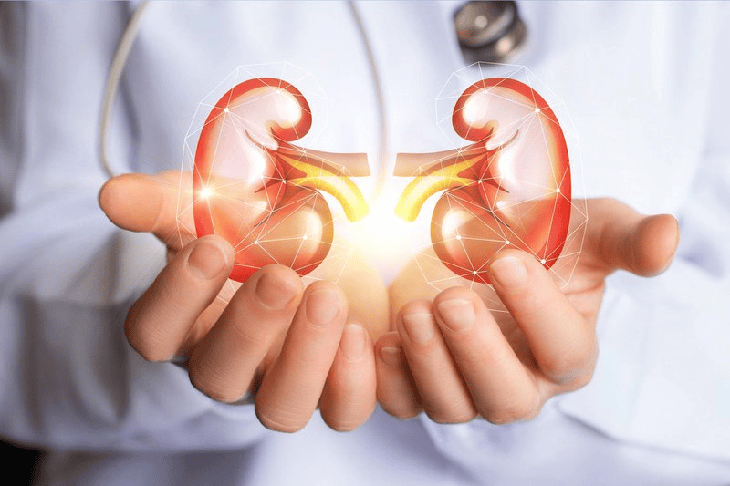
Nephrotic syndrome can be treated to reduce the condition, patients should not stop taking medication on their own - Illustration: BVCC
According to Dr. Dao Thi Thu - Center for Nephrology, Urology and Dialysis, Bach Mai Hospital - nephrotic syndrome appears when there is damage to the glomerulus due to many different causes.
Characterized by 3 signs: high proteinuria (over 3.5g/24h), decreased blood albumin and edema. The disease occurs in both children and adults, can be primary (kidney damage) or secondary due to diseases such as diabetes, lupus, infection, cancer...
"Edema is the most common and obvious manifestation, often appearing on the face (such as swollen eyelids) in the morning, then spreading down to the legs. Edema progresses rapidly, severe cases can cause multi-membranous effusion such as abdominal, pleural, and pericardial effusion.
In addition, patients may urinate less, have foamy urine due to high proteinuria, and some patients may have blood in their urine. When seeing these signs, go to a medical facility immediately for timely diagnosis and treatment," Dr. Thu advised.
Nephrotic syndrome, if not well controlled, can cause many life-threatening complications. Most notably, infections (such as pneumonia, cellulitis, primary peritonitis, etc.), thrombosis (lower limb embolism, pulmonary embolism, cerebral embolism, etc.), renal failure (acute renal failure, chronic renal failure), electrolyte disturbances, and complications related to drug side effects.
To treat nephrotic syndrome, Dr. Thu said it is necessary to determine whether it is primary or secondary nephrotic syndrome to decide whether to treat it specifically with immunosuppressive therapy or not?
Ensure a balance between treatment benefits and side effects of the drug. In addition to choosing the appropriate regimen for each patient, patienteducation and counseling also plays an extremely important role.
In addition, patients need to follow the following recommendations:
- Adhere to treatment: Do not stop taking the medication on your own even if you feel less swollen. Stopping the medication on your own will cause the disease to relapse and become more severe, and you will have to use high doses of corticosteroids again.
- Regular check-ups: Need to have check-ups according to doctor's instructions. One day before the medicine runs out, patients need to do blood and urine tests to adjust the regimen in time. Do not arbitrarily buy medicine according to the old prescription.
- Scientific nutrition: Eat enough protein (1-1.5g/kg/day), reduce salt (<2g/day), limit sweets and bad fats.
- Vaccinations: Annual flu shots, pneumococcal and hepatitis B vaccines are "armor" to protect the body from infection.
"In fact, many patients with nephrotic syndrome relapse because they stop taking their medication on their own. The main reason for this condition is that patients mistakenly believe that when the edema disappears or their tests improve, they are cured.
Another common cause is that patients read information about the side effects of the drug, become worried and stop taking the drug without consulting a doctor. This leads to unfortunate complications.
Therefore, patients should absolutely not stop taking medication without a doctor's instructions even if the swelling has gone away," Dr. Thu emphasized.
Source: https://tuoitre.vn/sang-thuc-giac-mi-mat-sung-roi-lan-xuong-chan-coi-chung-mac-benh-ve-than-20250412104350838.htm





























































































![[Infographic] In 2025, 47 products will achieve national OCOP](https://vphoto.vietnam.vn/thumb/402x226/vietnam/resource/IMAGE/2025/7/16/5d672398b0744db3ab920e05db8e5b7d)





Comment (0)